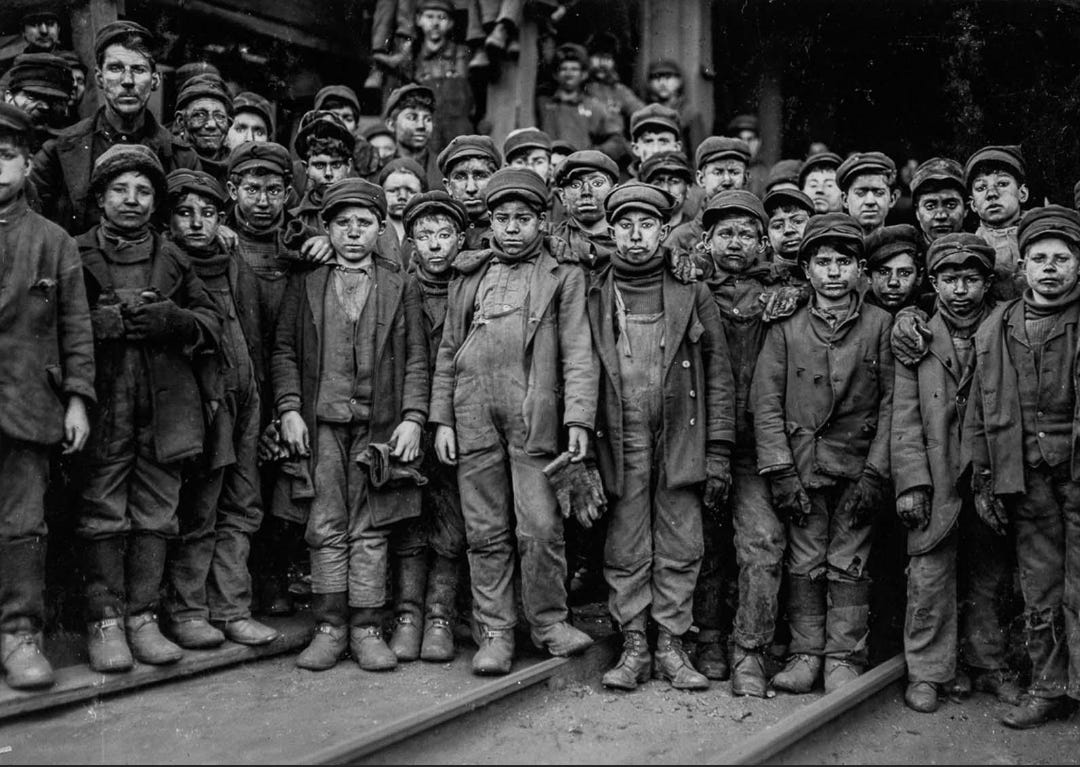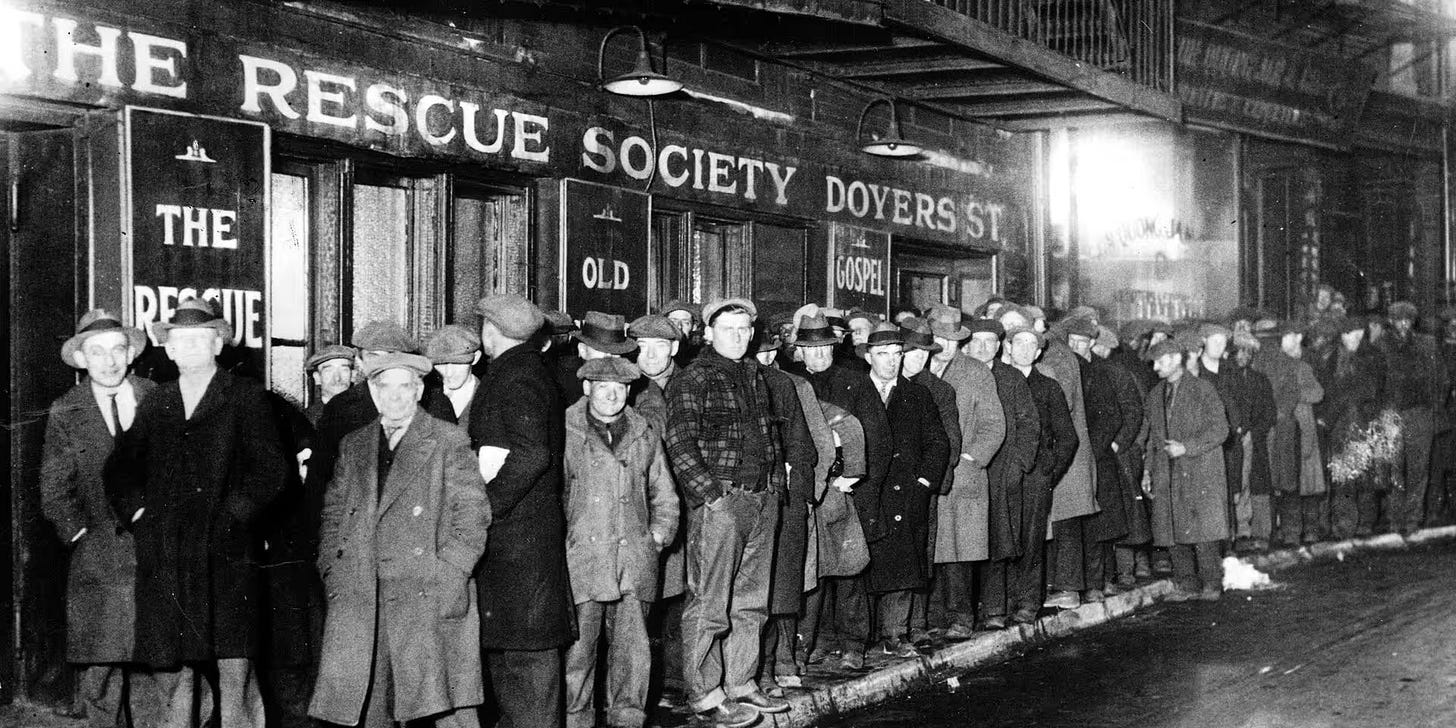In America today, more young people are turning away from capitalism and starting to speak positively about socialism. This is especially visible inside the Democratic camp. To many Americans, this feels new. To someone from China, it does not.
We were taught from middle school onward that capitalism carries built-in problems. These lessons were part of our basic education. What Americans are now discovering is what we learned as common sense.
And at the center of this, it has always been a class issue. The struggle between the working class and the ruling class.
The Historical Record of Capitalism’s Failures
Capitalism’s contradictions are not a fresh topic. They have appeared across more than two centuries of history.
Industrial Revolution in Britain
Enclosure Movement: Farmers were pushed off their land, forced into cities, and turned into wage laborers. The working class was born through dispossession.
Child Labor: Children worked long hours in mines and factories for pennies. Exploitation started young.
Worker Misery: Engels described the filth and disease of Manchester’s worker districts. The working class paid in health and life.
Suppressed Movements: Chartist petitions and strikes, demands from workers, were outlawed by the ruling class.
Colonial Expansion: Britain plundered India, China, and Africa. The colonies’ labor and resources enriched oligarchs at home.
Nineteenth and Early Twentieth Century
The Communist Manifesto (1848): Called out the conflict between capitalists and workers as the driving force of history.
Paris Commune (1871): The first time workers seized power, crushed by the ruling class in blood.
Imperial Rivalries: Monopolies and empires fought to expand their dominance. Workers died in the wars.
The Twentieth Century
Great Depression (1929): Millions of workers were unemployed and hungry while bankers kept their wealth.
Two World Wars: The working class was sent to die while capitalists sold arms and counted profits.
Vietnam War: Framed as ideology, driven by the ruling class's profit and hegemony.
Civil Rights Struggles: Proof that workers, especially minorities, were locked out of equality while elites maintained control.
The Twenty-First Century
2008 Financial Crisis: Workers lost jobs and homes. Oligarchs in finance were bailed out.
Medical and Educational Inequality: The working class takes on crushing debt while elites buy privilege.
Gun Violence and Drugs: Symptoms of despair among workers in a system that abandoned them.
Iraq War: Working-class soldiers fought and died. The ruling class chased oil and contracts.
Global Exploitation: IMF and World Bank loans kept weaker nations subordinate to global elites.
Capitalism and Socialism as Principles of Governance
Capitalism and socialism are not good or bad in themselves. They are principles of governance. Which one dominates depends on the stage of development.
In the early stage, capitalism drives accumulation. It builds industry and expands markets. But this growth rests on the exploitation of the working class. Their labor creates the wealth, while the ruling class captures the profits.
Once society reaches prosperity, the question changes. Resources should raise the living standard of the majority. This is where socialist principles matter: education, healthcare, housing, and social welfare for the working class.
In America, the transition was blocked. The oligarchic ruling class hijacked the process. Capital that should improve public welfare is instead used to buy influence, shape media, and control elections. The wealth created by workers was diverted upward to entrench elite power.
This is not abstract ideology. It is class struggle.
A Direct Word to Americans
Your disappointment with capitalism is justified. The issue is not laziness, race, or one administration’s mistakes. The issue is class. The working class produces the wealth. The ruling class captures it.
Capitalism at this stage cannot self-correct. It should have shifted to serve the people, but oligarchs stopped that transition. The result is stagnation for workers and consolidation for elites.
If you see this, the question is simple. Will you settle for cosmetic reforms, or will you confront the ruling class and demand a new principle for governance?
A Challenge to Conservatives
And to my conservative friends, think carefully about what “conservative” means.
Conservatism is not about slogans or party loyalty. Conservatism means making today’s decisions with respect to traditional values and historical facts.
Traditional values are not a five-year memory. They are the record of a hundred years and more. If you want to be true conservatives, you must look back far enough to see how capitalism once drove growth, but also how it produced repeated crises and crushed the working class.
This is why this article looks back through history. The facts are there. To be conservative is to learn from them and apply them.
Conservatism without history and without class awareness is not conservatism at all.
Final Note
If you value long-form, fact-based perspectives outside the American bubble, consider becoming a paid subscriber.











